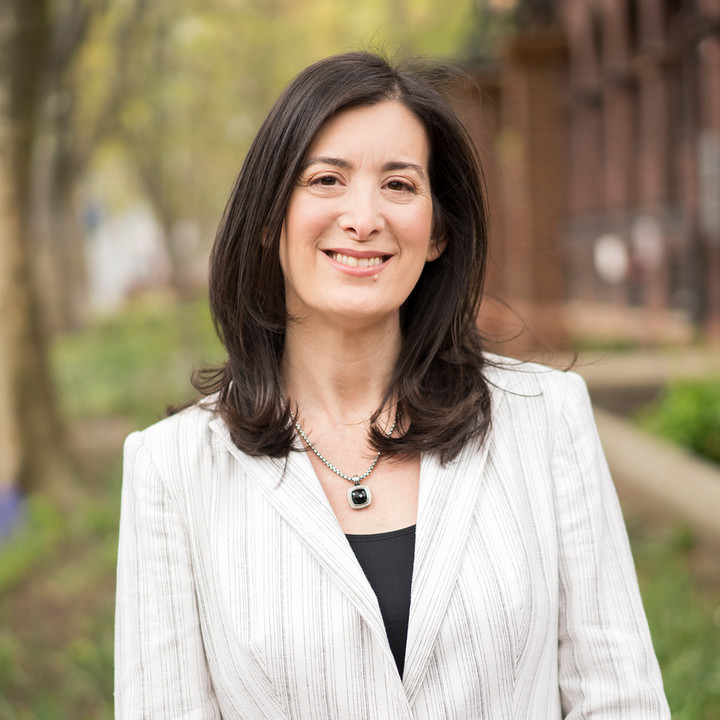
Dean's Distinguished Visiting Fellows Program
Dean’s Distinguished Visiting Fellows Program
The Dean’s Distinguished Visiting Fellows Program was established to deepen our commitment to our scholars and their research. This innovative program reflects our efforts in promoting impactful scholarship from academics around the world, while fostering junior faculty and Ph.D. student development. It also builds on our success in attracting and hiring faculty.
During their week-long visit to Rice Business, the distinguished fellows share their strategies for building a systematic research program and the key decision-making points in their journey toward important discovery and influential careers.
The objectives of the Dean’s Distinguished Visiting Fellows Program are to:
- Promote high-quality and high-impact research
- Facilitate junior faculty’s development of their research program and external recognition
- Facilitate Ph.D. student training and placement
- Build new connections with leading scholars and expand JGSB faculty’s research network
- Communicate our aspirations and accomplishments with leading scholars
Eligibility
Scholars who meet the following criteria are eligible for appointment as Dean’s Distinguished Visiting Fellow for a given year. It’s an honorary title that doesn’t have any implication for compensation or full-time faculty appointment at Rice Business. Scholars must:
- Have conducted high-quality and high-impact research
- Have received significant recognition in their field
- Continue to be active in high-quality and high-impact research
- Are not yet closely affiliated with Rice Business (e.g., who are not former faculty, coauthors or prior students of current Rice Business faculty)
- Are committed to spending a week visiting Rice Business during the year that they hold this honorary title
Description
This is an optional program. Each faculty area decides whether they elect to participate in this program in a given year. At any time during the year, the area coordinator sends the area’s nomination(s) to the deputy dean of academic affairs, who will make appointment recommendations to the dean. The nomination should include the CV of the nominee and a brief justification. Each area may nominate and invite up to two fellows each year.
Each fellow visits the Rice Business for a week. During the visit, they are expected to run activities consistent with the objectives of this program (e.g., conducting research seminars and professional development workshops on how to build an impactful research program, navigate the review process at top journals, and other relevant topics for our faculty and Ph.D. students).
Meet Our Distinguished Visiting Fellows
The April 14, 2025 Dean’s Distinguished Visiting Fellow is Marco Pagano, Professor of Finance at the University of Naples Federico II.

Careers and Wages in Family Firms: Evidence from Matched Employer-Employee Data
Abstract: We investigate compensation policies in family and non-family firms using a novel employer-employee matched dataset comprising nearly the universe of Italian incorporated firms and ownership information. Family firms pay significantly lower wages and offer slower and less rewarding careers. Differences in worker sorting account for half of the wage gap while productivity differences and compensating differentials explain little of the residual gap. The wage distribution in family firms is more compressed, with infrequent promotions. We rationalize this evidence with a model where family owners seek to maintain control, creating a “glass ceiling” that limits their employees’ career progression.
Past Seminars
-
It’s not You, it’s Us: From Leader to Stakeholder-oriented Theorizing about Gender Bias in Leadership Settings
Aparna Joshi, Professor of Management and Organizations
Stephen M. Ross School of Business, University of Michigan
March 3, 2025 Abstract: Past theorizing in gender research has relied on the well-worn assumption that all stakeholders are likely to evaluate female leaders based upon the extent to which they fit with “lay theories” or prototypes of effective leadership. This logic suggests that, because stereotypes based on gender generally do not fit leader prototypes, female leaders are likely to be evaluated unfavorably compared to their male counterparts. Broadly speaking, this past research has taken a leader-oriented approach to theorizing about how attributes of the focal leader (e.g., a female leader’s display of a specific form of agency, her performance in the role, or her outsiderness as a CEO) drive leader appraisals. However, support for this approach to theorizing about gender bias in leadership settings is wavering. We build on motivated cognition theory, and in contrast to a leader-driven appraisal process, propose an stakeholder-oriented framework for theorizing about social bias. This framework recognizes that expressions of social bias in leader evaluations can take on varied textures based on the motivations of stakeholders themselves. Through our theorizing we aim to shift the focus away from leader-centered interventions (“what can women do differently?”) and toward stakeholder-focused solutions (“what can firms and their stakeholders do differently?”). The presentation will discuss the implications of a stakeholder-oriented theory for gender and social bias research as well as the practical implications of such an approach.
Abstract: Past theorizing in gender research has relied on the well-worn assumption that all stakeholders are likely to evaluate female leaders based upon the extent to which they fit with “lay theories” or prototypes of effective leadership. This logic suggests that, because stereotypes based on gender generally do not fit leader prototypes, female leaders are likely to be evaluated unfavorably compared to their male counterparts. Broadly speaking, this past research has taken a leader-oriented approach to theorizing about how attributes of the focal leader (e.g., a female leader’s display of a specific form of agency, her performance in the role, or her outsiderness as a CEO) drive leader appraisals. However, support for this approach to theorizing about gender bias in leadership settings is wavering. We build on motivated cognition theory, and in contrast to a leader-driven appraisal process, propose an stakeholder-oriented framework for theorizing about social bias. This framework recognizes that expressions of social bias in leader evaluations can take on varied textures based on the motivations of stakeholders themselves. Through our theorizing we aim to shift the focus away from leader-centered interventions (“what can women do differently?”) and toward stakeholder-focused solutions (“what can firms and their stakeholders do differently?”). The presentation will discuss the implications of a stakeholder-oriented theory for gender and social bias research as well as the practical implications of such an approach. -
The inaugural Dean’s Distinguished Visiting Fellow was Nancy Rothbard, David Pottruck Professor of Management and Deputy Dean at The Wharton School at the University of Pennsylvania.
Creating the Will Without the Way? How and When Employee Belonging Leads to Voice on DEI Issues
January 30, 2024
 Abstract: A core belief in the diversity, equity, and inclusion (DEI) literature is that increasing employees’ sense of belonging can improve an organization’s DEI environment and outcomes. We directly examine this assumption and argue that employee belonging is a necessary but insufficient condition for enhancing employees’ voice on DEI issues that is, employees’ proactive expression of ideas, problems, and issues to improve DEI outcomes. We propose that employee belonging, which generates a strong motivational force in employees to benefit their group (i.e., the will), only leads to DEI voice when the organization has a high level of DEI practices that channel and structure such motivation toward improving DEI (i.e., the way).
Abstract: A core belief in the diversity, equity, and inclusion (DEI) literature is that increasing employees’ sense of belonging can improve an organization’s DEI environment and outcomes. We directly examine this assumption and argue that employee belonging is a necessary but insufficient condition for enhancing employees’ voice on DEI issues that is, employees’ proactive expression of ideas, problems, and issues to improve DEI outcomes. We propose that employee belonging, which generates a strong motivational force in employees to benefit their group (i.e., the will), only leads to DEI voice when the organization has a high level of DEI practices that channel and structure such motivation toward improving DEI (i.e., the way). Further, we theorize two mechanisms—identity manifestation and noticing DEI problems—that explain the interactive effects of belonging and DEI practices on DEI voice. We test our hypotheses across three studies—a large-scale field study, a survey using a generalizable sample of working professionals, and an online experiment that manipulates belonging—and we find that only when employees perceive a high level of DEI practices in their organization does their sense of belonging enhance DEI voice. This effect is consistently mediated by identity manifestation and noticing DEI problems. We discuss how our findings contribute to research on belonging, DEI, and allyship in organizations.
Keep Exploring
Have a Question?
Mary Gibbs Jones Professor of Management and Psychology – Organizational Behavior

